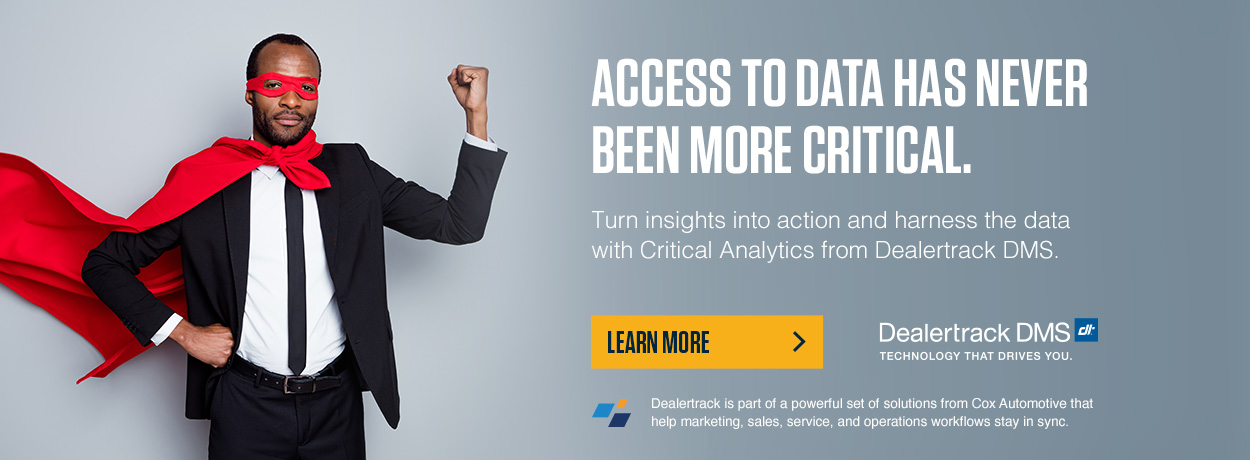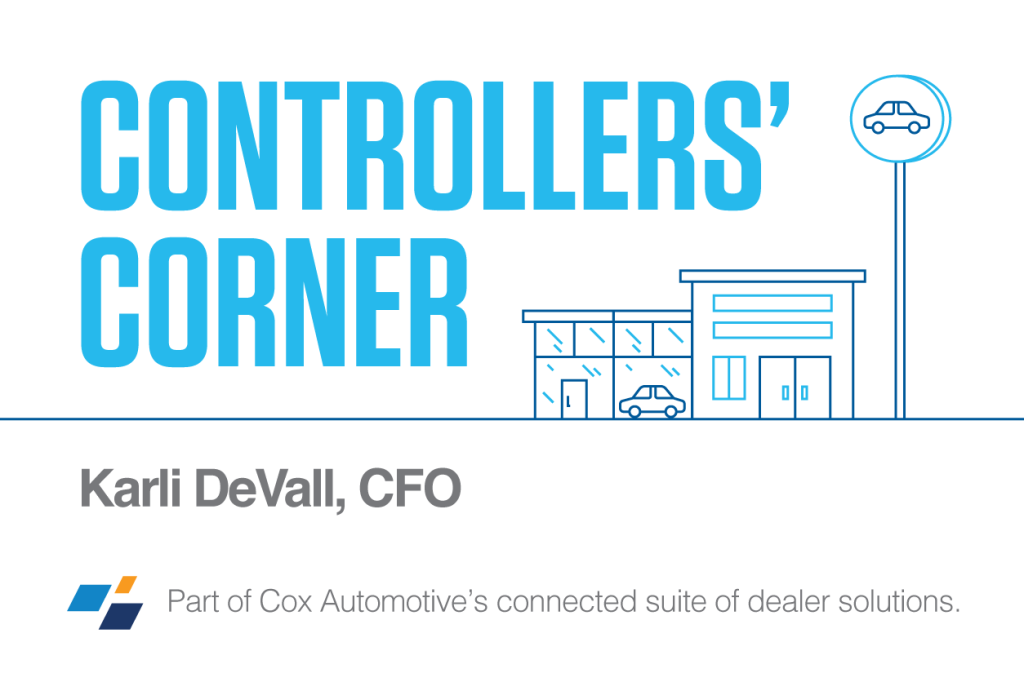Working in retail automotive, we hear a lot about data. It’s practically everywhere—troves of it. In fact, most dealer management systems are filled with all the data we could ever need. And if we had time, we could dive in, all day long, and consume it.
It sounds like a joke, but when it comes right down to it, a lot of us simply throw our hands up. Instead, franchise dealerships operate month-to-month—most of the time looking back at past performance. How did we do? Where did we fall short? Were we close to hitting our goals? Just imagine if we could flip that. Harnessing predictions, unlocking data’s true potential, and influencing key-decision-making would make it possible to act fast, and take swift action based on data, not just our gut feelings. The events of 2020 and 2021 taught many dealers a lot of valuable lessons about the ability to pivot and adapt to change. But if we can’t leverage data—without always being reactionary—the true cost to our business will always be realized in hindsight.
Actionable Insights We Can Use
As a Performance Manager, I have the privilege of spending time working one-on-one with franchise dealers, helping them get the most out of their technology. Whether we’re standing up a new Dealer Management System, working out a new integration, or updating processes, there’s almost always a rough spot or two to work out. But there’s never a lack of data to sort out. One of the more rewarding parts of the job is seeing the “lights turn on” for those new hires and team leaders who’ve tapped into their DMS and found data and analytics that deliver action-based insights. And that’s kind of the whole point. If your reports aren’t easily digestible, organized by role, and flexible enough that senior leaders have access across departments, then they probably won’t see much use.
KPIs that Drive Productivity
Everyone who has worked in a dealership has been frustrated by underperformance. Yet, the push to “just do better” or “increase production” rarely does the trick. Upping the hours your service team works doesn’t result in higher profitability. It usually results in burnout, overworked staff, and a net loss. Data from your DMS—when paired with Critical Analytics—works like a high-powered calculator. With detailed dashboards and reporting modules, our partners get drill-down KPIs into the daily performance output of team members across the dealership. This is the kind of data that you can use to take small steps, day-by-day, month-by-month, to improve by setting benchmarks and goals that result in sustainable productivity. So you can ditch the guesswork and help your employees, all the while avoiding burnout.
The Future is Data-driven
Data is not a temporary technical advantage. It does more. And we’ve yet to unlock its potential within the dealership. Right now, we’re at the tip of the iceberg of how data analytics can improve our industry. When it comes to understanding where our revenue comes from (or why it’s suddenly going to crash), we need to use data to look six months or further into the future of our business projections. Critical Analytics within the DMS provides monthly predictive dealership pacing, based on how you’ve performed so far. So, for example, when those cars come back onto your lot to sell, you can be prepared. But, our team is still thinking bigger. Imagine harvesting DMS, CRM, F&I Data all together to look even further. There’s more to the picture that we’re not seeing. The insights are there.
Data from your DMS matters more than ever. Automotive technology is more integrated, more interconnected, and more powerful than it’s ever been. If we can make the mindset shift from hindsight to foresight, our ability to drive change before a disaster will be unmatched.
Ready to learn more? Schedule a demo with your Performance Manager to uncover the data within your DMS using Critical Analytics today.
About the Author
Tom Tellepsen | Dealertrack DMS Performance Manager
Tom Tellepsen is a Performance Manager at Dealertrack DMS with over 18 years of experience helping franchise automotive partners reach their goals by optimizing budgets, building better operational procedures, and obtaining the right mix of tech and talent. Prior to joining Dealertrack, Tom worked as a General Manager and General Sales Manager in some of Virginia’s leading franchise dealerships.





 Karli DeVall is the CFO at Tim Dahle Nissan and Red Rock Auto Group. Prior to her current role, she spent ten years running an accounting and consulting practice in the retail automotive industry where she specialized in fixing broken accounting offices. She is passionate about the role that controllers and accounting teams play in the business and looks for ways to empower teams to connect and showcase their skills to their community.
Karli DeVall is the CFO at Tim Dahle Nissan and Red Rock Auto Group. Prior to her current role, she spent ten years running an accounting and consulting practice in the retail automotive industry where she specialized in fixing broken accounting offices. She is passionate about the role that controllers and accounting teams play in the business and looks for ways to empower teams to connect and showcase their skills to their community.